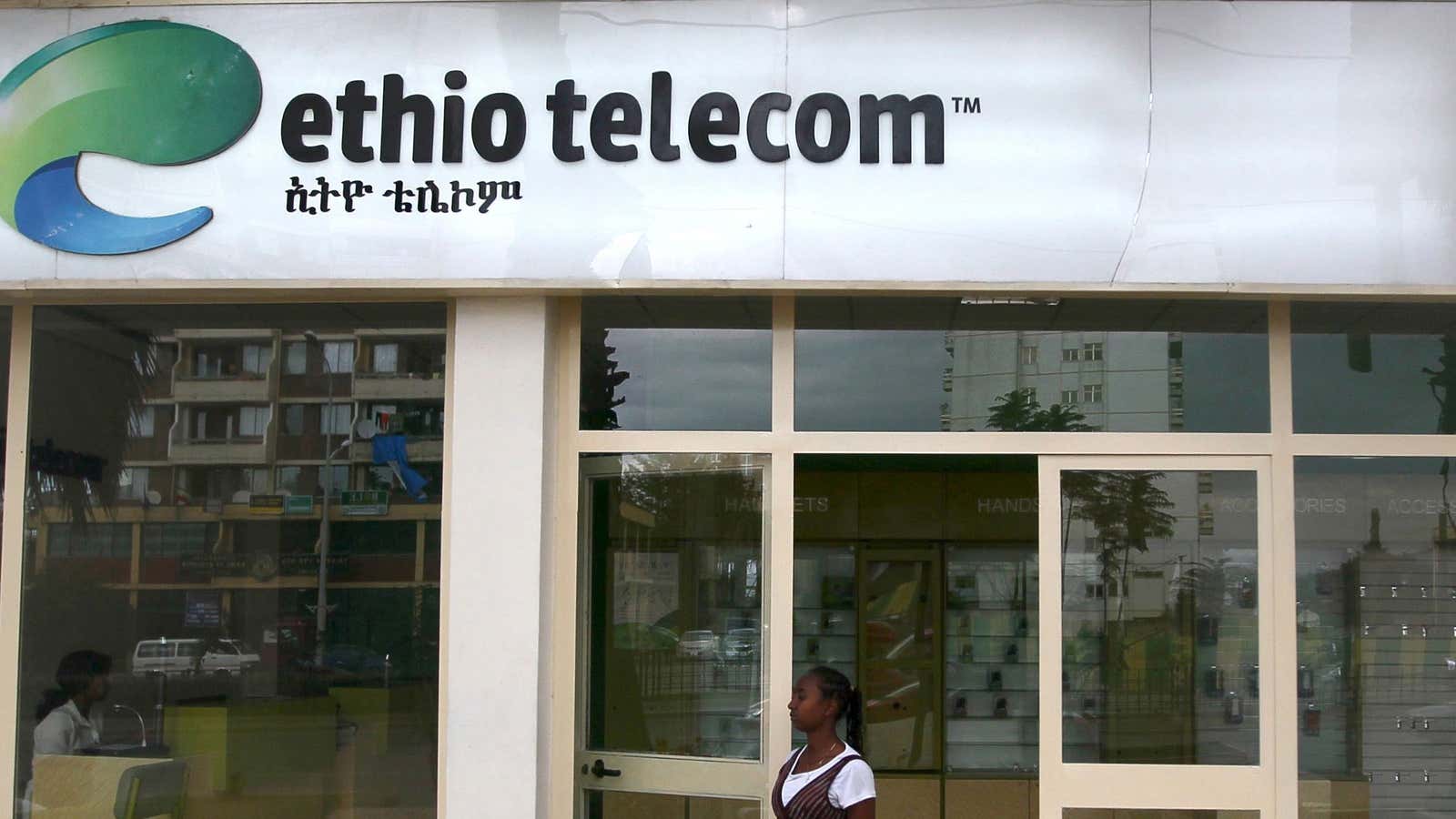Ethiopia’s government has regressed to an old habit: shutting down the internet.
Reports show the internet has been blocked in the eastern cities of Jijiga, Dire Dawa, and Harar following violence and simmering political tensions. Over the past weekend, federal troops were deployed to the eastern Somali regional state, leading to a standoff with local police, lootings, and death. The region’s leader Abdi Mohamoud Omar, better known as Abdi Iley, was forced to resign and replaced by his finance minister Ahmed Abdi Mohammed.
Following the unrest, officials cut off internet access to the region, with no explanation from either the ministry of communications or the sole mobile operator and internet provider Ethio Telecom.
The move is indicative of an old Ethiopian government trick, blocking the internet or access to specific social media sites like Facebook and Twitter during anti-government protests or unease. During the state of emergency in 2016, the government made posting updates about the protests on Facebook a crime. In 2017, officials blocked the internet ahead of scheduled national examinations fearing activists will leak the tests. All these cut-offs, research showed, drained millions of dollars from the economy.
But under the new prime minister Abiy Ahmed, the expectation was that his administration would no longer stifle internet access. Immediately after he came to power in April, Abiy ended a web blackout, reinstituting both mobile and broadband internet services across the country. The government also dropped charges against journalists and bloggers and unblocked more than 260 websites.
But while Abiy has deplored the violence and deaths in the eastern Somali region, digital rights activists are worried about the negative impact the disruption might have in exacerbating the situation. In a letter to Abiy, Keep It On, a coalition of 150 organizations from over 50 nations fighting to keep the internet on, urged him to restore connections, noting it was detrimental to information flow, businesses, and emergency services. They also estimated the current shutdown was costing Ethiopia over $32,500 daily in direct economic income.
“People in eastern Ethiopia deserve better from the federal government,” Berhan Taye, who leads digital rights group Access Now’s Keep It On campaign, said on Twitter. “Access to information and freedom of expression are not a luxury dispensed at the convenience of the federal government. They are constitutional rights.”
